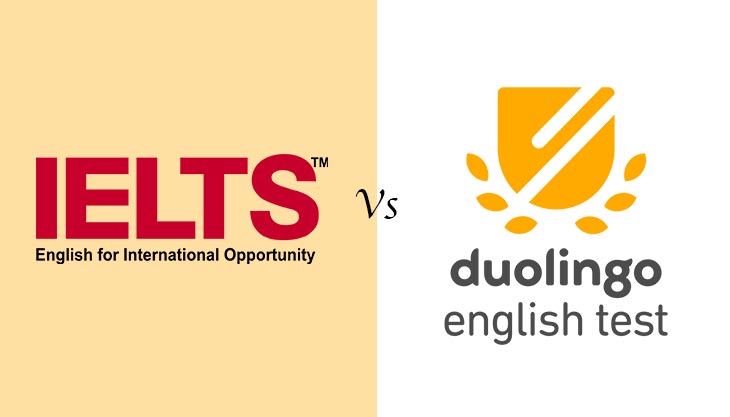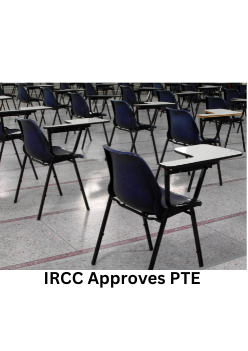Suspension and cancellation of major tests coupled with test centre closures across the world due to the coronavirus pandemic, have thrown a number of Study Abroad aspirants for a loop – delaying application processes and test scores submission.
However, Duolingo, the language teaching platform, has quickly and efficiently risen to the occasion, with a low-cost, quickly-processed test format that – best of all – can be taken at home!
With an increasing number of universities accepting Duolingo test scores as fulfilling English language requirements for international students, you now have an excellent alternative to the IELTS and other tests (best ielts coaching center).
The Hurray Overseas Education team has compiled some information that will help you decide on the kind of test you can opt for and proceed accordingly. Easy Tips to Learn IELTS. To know Step by step Process Click here.
But how do IELTS and Duolingo compare?
You have probably been focused on prepping yourself for your now-cancelled IELTS examination – and now, you may be concerned about making the shift to Duolingo.
Worry not! We’re summing up all the information you need to help you understand the difference between IELTS and the Duolingo English Test – and thus, how your approach has to change!
The Basics
-
How, when, where – do I take my test?
|
IELTS |
Duolingo |
|
How: you have an option between a paper-based (pbt) and computer- based test (cbt) When: up to 48 test dates a year for pbt OR 5 days a week for cbt – depending on test location, and on appointment-basis
Where: designated testing centres at limited locations |
How: the test is entirely computer-based When: may be taken anytime after registration and fee payment – no appointment required
Where: at home! |
-
How much would my test cost?
IELTS, like most other major international English tests, ranks on the higher side in its pricing – an Indian participant pays a fee of 14000 INR.
Duolingo, in comparison, is extremely low-cost – at just 49 USD worldwide, roughly translating to 3700-4000 INR (best ielts coaching centre in bangalore).
The Test
-
How does the test work?
Both tests test you on the basis of LSRW – i.e. Listening, Speaking, Reading and Writing, the foundational skills of language-based communication. This, however, is where the similarity ends.
Test Structure
IELTS: The test (both pbt and cbt) is evenly divided into 4 sections. The Reading, Writing, and Listening sections are taken together in one sitting, while the Speaking test may be taken anytime within 1 week before and after the sit-down test (best ielts coaching in bangalore).
Duolingo: Questions related to LSRW are mixed up, rather than divided into separate sections. Furthermore, they are adaptive – i.e. the difficulty level of the questions will be adapted to your performance. This means that if you get a question correct, the next one will be of a higher difficulty level; and if you get it wrong, you will get an easier question.
Test duration
IELTS: The sit-down test has a duration of about 1.5 hours, divided into:
-
Listening – 30 minutes
-
Reading – 60 minutes
-
Writing – 60 minutes
The Speaking Test, taken separately, is of about 11-14 minutes (ielts coaching center).
Duolingo: The total duration of the test will be of 60 minutes, broken down to include
-
5 minutes: introduction
-
45 minutes: scored section
-
10 minutes: unscored video interview and writing sample (see below for the details)
Question types
IELTS – particularly IELTS Academic – is specifically designed to test your ability to communicate in English in academic settings. All its questions thus draw on material that is academic in nature.
The questions may be quite lengthy – for instance, the passages for reading tasks may be of 300 words or more, while the minimum word limit for the writing tasks is 250 (ielts coaching institute).
Duolingo, on the other hand, has a fairly varied and mixed collection of questions, pertaining to less academic settings, like everyday conversations, as well as general knowledge appropriate to the academic sector.
The questions are very short – there are no long passages, and minimum word requirements are 50-100 words. Furthermore, most of the questions can be answered within 2 minutes or less, going up to a maximum of 5 minutes for the writing-based tasks.
Comparing skills-based tasks
How do the 2 tests test you on your 4 main skills?
|
Skill |
IELTS |
Duolingo |
|
Reading |
Involves lengthy passages, based on which you will answer a series of questions, including Match Columns, Match Headings, Fill in the Blanks etc. |
Short questions relying mainly on vocabulary skills, and the ability to make inferences based on limited information – including questions such as ‘Identify correct English words’ and ‘Complete words in a passage’. |
|
Writing |
Involves 2 kinds of tasks – writing information presented graphically, and essay-writing, both with minimum word limits 150-250 words. |
Involves 2 kinds of tasks – describing an image in a few sentences, and writing a short passage, with a minimum word limit of 50 words. |
|
Listening |
Involves 4 recorded passages of conversations/monologues in both general and academic contexts – on the basis of which you will answer questions. |
Involves 2 types of questions - ‘Identify correct English words’ and ‘transcribe a recorded sentence’. |
|
Speaking |
Conducted by an examiner in person – involving introductory conversation, a short monologue on a topic, and a discussion of follow-up questions. |
Involves short questions requiring you to speak into the microphone – including ‘Label the object’, ‘Speak aloud a written sentence’ and ‘Speak on a short topic’. |
In addition, the Duolingo test includes an unscored section – consisting of a writing sample of a higher word count, as well as an interview, wherein you will speak on a given topic. These questions do not contribute to your overall score, but are sent to the institution, and play a role in determining your eligibility.
-
How will my test be scored?
IELTS scoring operates in the form of a band score – including individual band scores for each of the skill-based sections, and an overall band score. The band score ranges from 1 (non-user) to 9 (non-user) (ielts exam coaching near me).
Most universities typically demand a minimum overall band score of about 6-7, with some programmes requiring higher overall band scores or even skill-specific band scores.
Duolingo scores are based on a scale from 10 to 160. The scores are holistic – which means that you will only be able to see your overall score, not the sub-scores for each skill.
Most universities require a minimum score of 115, with some institutions or programmes requiring higher scores.
Score comparison
|
Proficiency |
IELTS |
Duolingo |
|
Low Intermediate |
5-5.5 |
60-85 |
|
Intermediate/proficient |
6-6.5 |
90-115 |
|
Very proficient |
7+ |
120+ |
Test scores and University application
-
When will I receive my scores?
IELTS takes between 5-7 days (cbt) to 13 days (pbt) to process scores.
Duolingo delivers your results within 48 hours.
-
Where will my test scores be accepted?
IELTS: this test is accepted by over 10,000 organisations worldwide, including higher education institutions and other training centres, professional bodies and employers.
It is also accepted for immigration purposes by the Governments of the UK, Australia, Canada and New Zealand.
Duolingo: several institutions, including some of the world’s top universities, are beginning to accept Duolingo scores for admission purposes. Duolingo publishes an updated list of universities worldwide that accept the test, which you can take a look at, at this link: https://englishtest.duolingo.com/institutions.
(This information is limited to academic years 2020-21 i.e. for admissions affected by coronavirus-related issues.)
-
How long will my test scores remain valid?
For both tests, scores are valid for a period of 2 years.
Final comments: IELTS vs Duolingo
IELTS is a well-established and universally accepted examination – with a good score, your proficiency will not be contested.
However, owing to global test center closures, the possibility of taking IELTS is a little shaky – with updates coming in very slowly, depending on a number of developing factors.
Duolingo, on the other hand, being an at-home test, is perfectly suited to present circumstances. However, it cannot be established for sure whether it will continue to be accepted as at present beyond the immediate academic year.
But for now, Duolingo remains an excellent and highly convenient alternative to traditional tests like IELTS.
But is the Duolingo test easier than IELTS?
IELTS certainly is a lengthier and more comprehensive test – designed to get a full picture of your proficiency level.
However, the Duolingo test has also been developed and designed to pinpoint your proficiency, within a short period of time – in terms of the structure of the questions, the given time limit, as well as the adaptive format of the questions.
Thus, although the Duolingo is a lot shorter, your ability to answer the questions correctly within the stipulated time limit does require good language skills – just as IELTS does! Based on your proficiency, you are likely to find the Duolingo test just as easy or difficult as you would find the IELTS test. (hurray ielts coaching in bangalore)
So how do I prepare for Duolingo?
Short answer: just about the same way as you would prepare for IELTS!
This involves:
-
Honing your reading skills
-
Building vocabulary and grammar
-
Getting used to English in use
…and most importantly – practice!
Your ability to crack either test ultimately depends on your ability to decode the questions and complete them in a timely manner. Every question in both the tests has a particular structure and a trick to answering them – which you will grasp all the better, the more you practice! (Online IELTS Classes)
Let Hurray help you!
Here at Hurray, we help you with everything you would need, on your path to a top university abroad! From advising you about which English proficiency test to take, and polishing up your application, all the way up to your arrival in your new home-country – Hurray will stay, every step of the way.
So, what are you waiting for? Book your FREE one-on-one counseling session with the Hurray Overseas Education counseling team – where we will discuss all your needs and get you started on your overseas education journey.
For more information – reach out to us at info@hurrayedutech.com or 8971357938 / 9900426501.
* Production of this material without written permission from the company will result in legal and criminal action against all perpetrators.











Post Comments